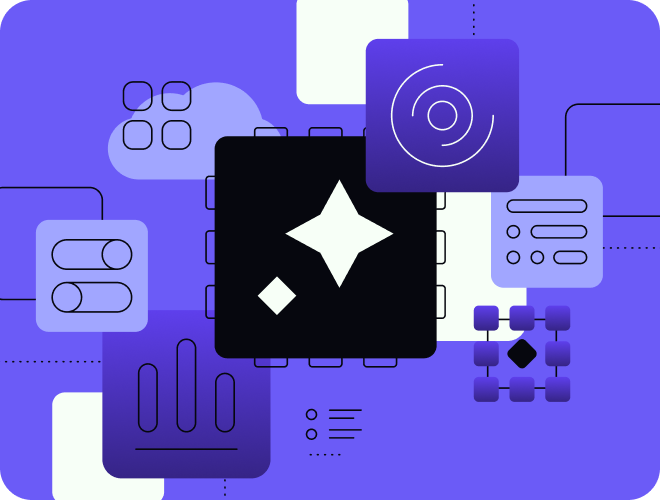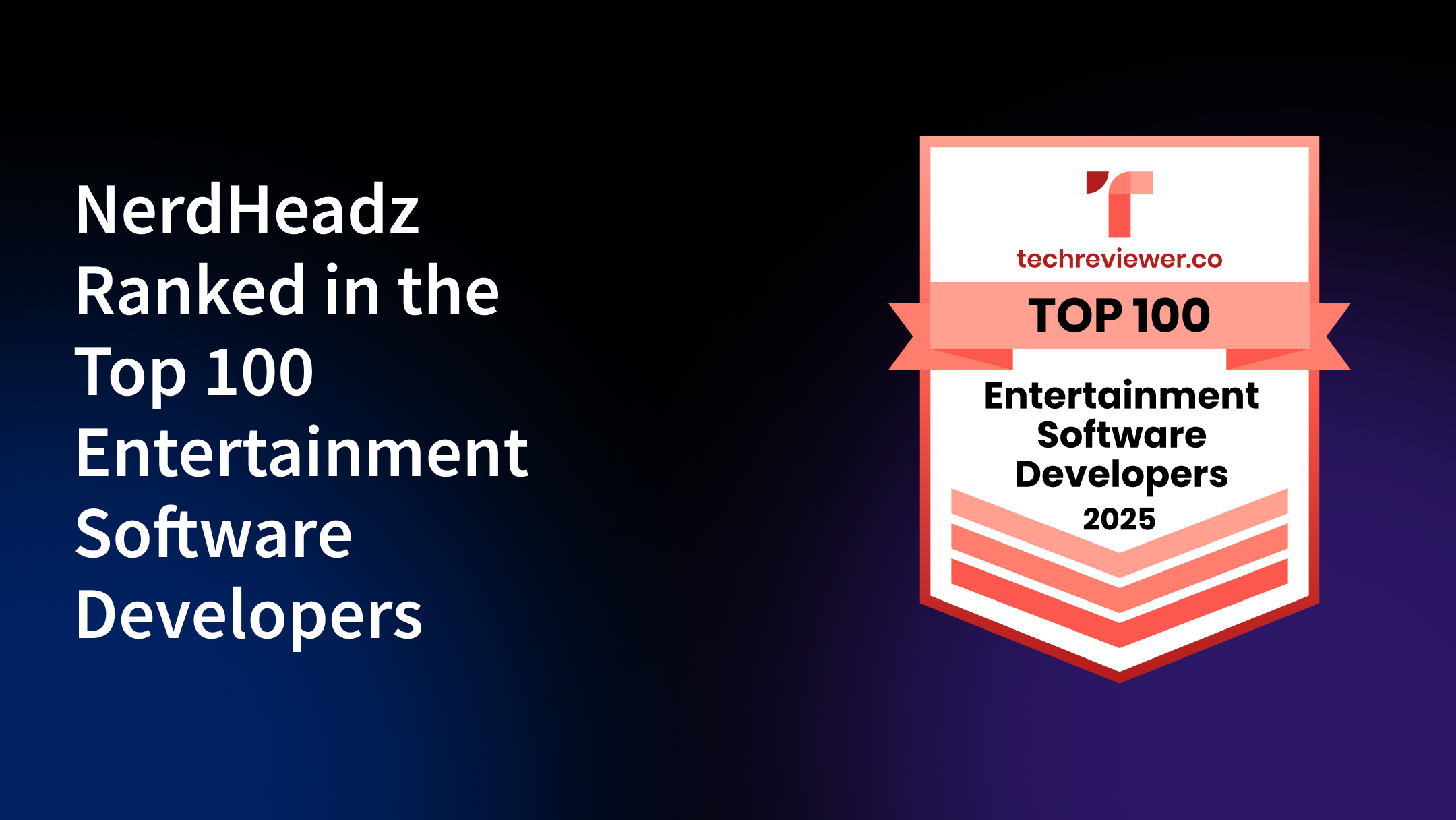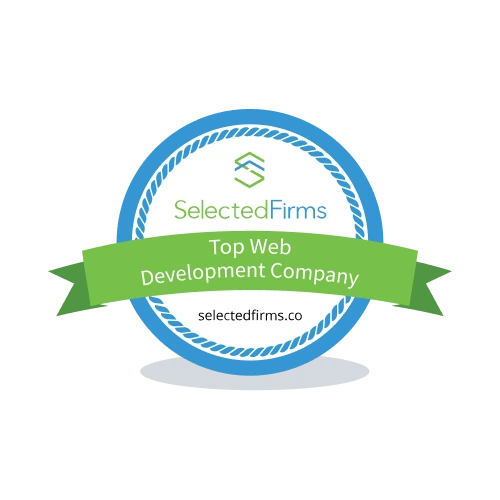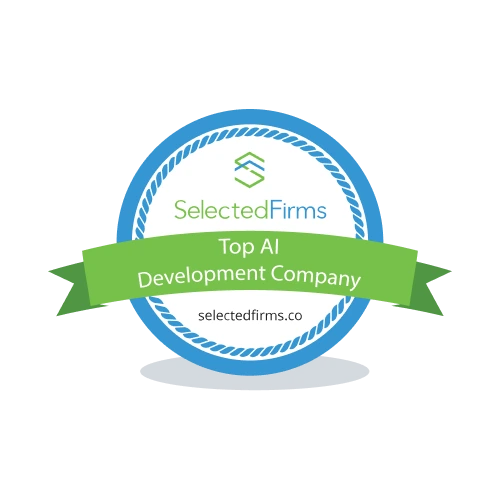Top SaaS Web Development Companies - 2025


.avif)
Subscribe to our Newsletter
Choosing the right SaaS web development company can shape your entire product trajectory, from how fast you launch to how well your platform scales under pressure.
But not every team that builds websites is equipped to deliver working SaaS products, especially those with real architecture, billing logic, or user-facing automation.
This guide helps you find a partner who understands more than just code.
We break down what sets top agencies apart, what services they offer, and how to match their strengths to your business goals and product stage.
You’ll find a ranked list of the best SaaS development companies in 2025, including full-service agencies, design-forward studios, and engineering-led teams. Each profile outlines what they do well, and where they fit best.
Read on!
What is a SaaS Web Development Company?
A SaaS web development company is a team that designs and builds cloud-based applications users access through a browser. These tools are hosted remotely and sold as subscriptions, common examples include CRM platforms, accounting software, or team collaboration apps.
The job is more than merely writing code.
SaaS development services usually include product planning, user-centric design, backend logic, and cloud setup. A reliable partner in this space helps teams define their product, select a technology stack, and build for long-term growth.
Most agencies also handle key services like API development, multi-tenant architecture, security reviews, and custom software development. Some specialize in custom SaaS development for new ventures. Others work with growing companies to modernize existing software or migrate to better infrastructure.
For companies starting or growing an online product, an excellent SaaS development firm provides more than delivery, they provide development expertise, assist in goals clarification, and assist your product from conception to web presence.
What Qualifies a Team as a Leading SaaS Web Development Company?
Not every agency that builds web apps understands what makes SaaS work. A top-tier SaaS development company combines technical execution with a clear understanding of business models, user behavior, and product maintenance throughout the software development lifecycle.
Below are two foundational areas every serious SaaS team should master.
Deep SaaS Product Expertise: Multi-tenant, Subscription, & Scaling Architectures
A qualified SaaS web development company understands how subscription-based platforms operate behind the scenes. That means handling billing rules, pricing tiers, account roles, usage tracking, and permissions without introducing delays or downtime.
Multi-tenant architecture is a an important part of this.
Instead of duplicating infrastructure for each user, platforms must share resources securely and efficiently. Teams that specialize in custom SaaS development build systems that support user growth, isolate data properly, and stay responsive under traffic spikes.
Understanding scaling goes beyond writing fast code. It involves thoughtful database design, strategic caching, and working with cloud services to support platform performance.
A skilled SaaS application development company considers these challenges early, so the product works well when the first users sign up and continues to perform when thousands rely on it daily.
Full-Stack Strength: Frontend UX/UI, Backend, APIs, DevOps, & Security
Every layer of a SaaS product affects how users experience it.
A complete team will cover frontend workflows, backend logic, cloud infrastructure, QA testing, and release pipelines while focusing on long-term maintainability.
Design teams shape user flows around real tasks. Backend engineers organize data and business logic so features feel fast and predictable. DevOps specialists set up CI/CD pipelines, logging, and cloud deployment to reduce downtime and support versioned releases.
Security is treated as a main part of the process, not an afterthought. From OAuth implementation to encrypted storage and permission modeling, the development team must plan for common threats and compliance needs.
Teams that build SaaS platforms professionally know how to deliver software that holds up under pressure. They plan, test, and release in a way that aligns with the product’s objectives, user behavior, and anticipated scalability.
Proven Delivery: SaaS Projects That Go Beyond Demos
Shipping a polished demo is easy. Shipping a stable, scalable SaaS product that handles real traffic requires the same planning mindset found in enterprise app development.
Leading SaaS development companies show work that functions in production.
Look for examples that reflect actual usage: live dashboards, integrations with cloud services, subscription systems with flexible billing, or even no-code apps running complex workflows.. A SaaS development company that delivers working platforms is deeply involved in each technical aspect, from performance tuning to account management logic.
A strong delivery history also reveals how the team handles deadlines, communication, and stakeholder feedback.
Agencies with a proven track record in SaaS application development services tend to bring fewer surprises during high-pressure builds. That reliability matters when a product has paying users and no room for downtime.
Post-Launch Support & Iteration Strategy
A great SaaS platform isn't finished at launch.
Features grow. User behavior changes. Markets move. That’s why experienced teams plan for iteration early, mapping out checkpoints for feedback, testing, and infrastructure updates.
Top-tier SaaS development services include post-release support that goes far beyond basic bug fixes, especially for startups focused on scaling with software development agencies.
Teams may monitor API performance, improve latency, or revise parts of the architecture to support new use cases. Ongoing delivery is often where projects fall apart, unless there’s a structure in place for clear ownership and prioritization.
This phase also reveals how deeply a team understands product goals. Developers who stay engaged after launch are better equipped to align roadmap decisions with growth metrics, churn signals, or user behavior patterns.
SaaS product development isn’t a one-off task. It’s a long game, one that requires clarity, discipline, and real development expertise from the first release onward.
10 Best SaaS Web Development Companies in 2025 (Updated)
1- NerdHeadz - Custom SaaS Web & AI Development for Venture-Backed Startups
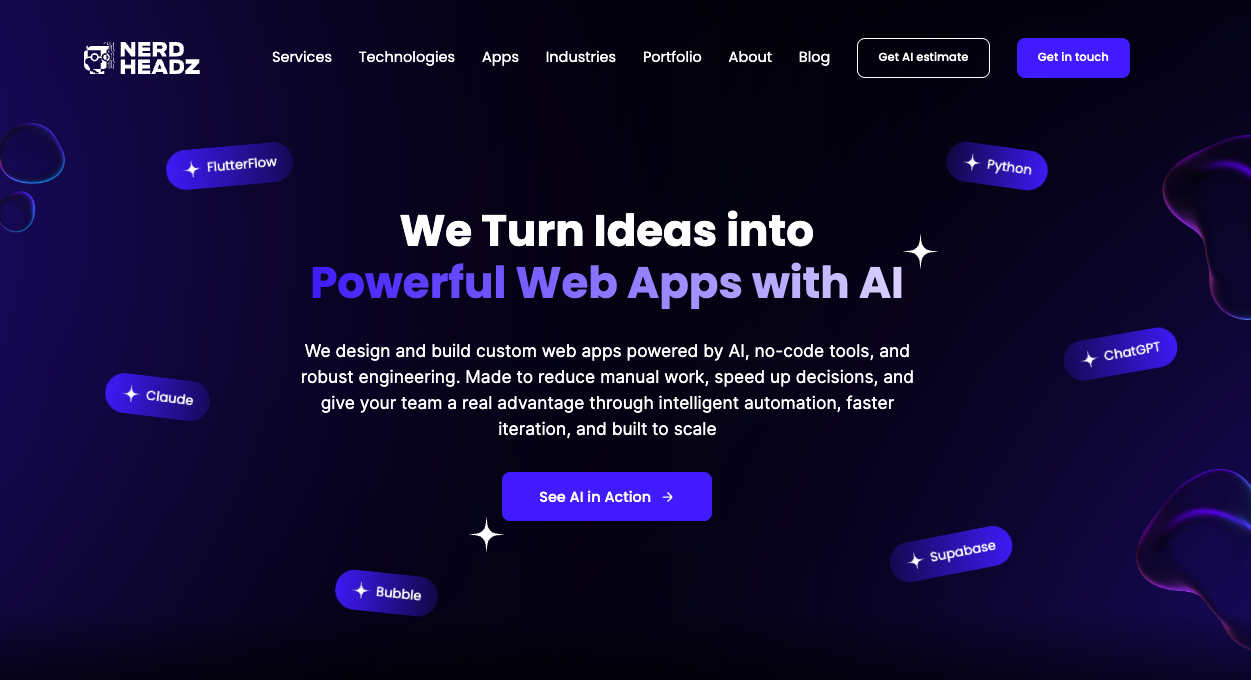
NerdHeadz leads the list for one reason: they deliver.
Based in Europe and the U.S., the team works closely with fast-moving startups, venture-backed, enterprises, and growing SaaS companies rely on their team to build, refine, and scale platforms, without bloated timelines or missed context.
Their work includes SaaS application development, backend infrastructure, no-code integrations, and AI development services, backed by their experience as one of the top custom software development agencies for SaaS teams..
What makes them stand out isn’t a single feature. It’s how well they align with fast-growth teams and turn vague ideas into stable, scalable products.
Services include:
- Custom SaaS platform development (B2B, B2C, internal tools)
- AI integrations using generative models, RAG development, and LLM APIs
- SaaS application development services for MVPs and v2+ products
- UX design, web development, and frontend engineering
- Infrastructure and DevOps setup using Google Cloud and AWS
- Ongoing product iteration and roadmap alignment
- SaaS consulting for business model clarity, architecture, and scaling
Why teams choose NerdHeadz:
- Built for speed: development cycles fit startup timelines
- Clear delivery structure: no scope drift, no hand-waving
- Developer fluency in SaaS business models, multi-tenant architecture, and data handling
- Flexible engagement: full builds or plug-in product squads
- Trusted by early-stage teams and funded companies scaling fast
They’re not just a vendor, they become part of the development team. For any SaaS project that needs fast traction and long-term structure, NerdHeadz is the right SaaS development company to talk to.
2- GojiLabs - Startup-Focused Product & Web Development Partner
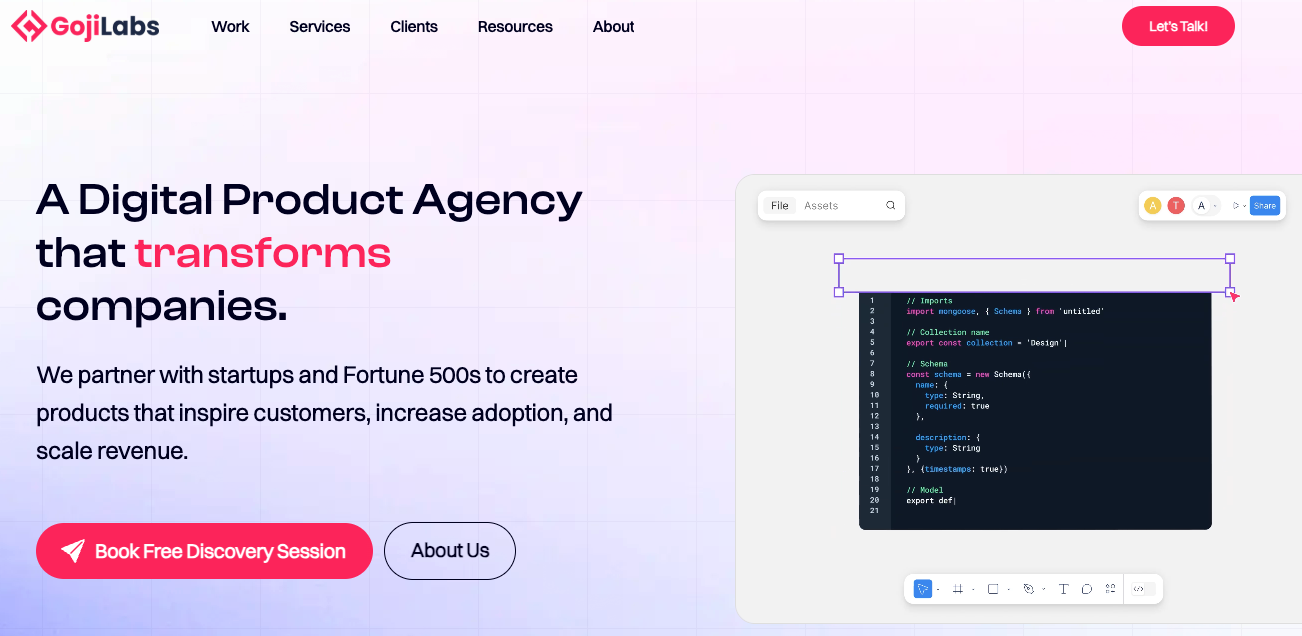
GojiLabs is a U.S.-based development company known for working with early-stage teams. They focus on turning product ideas into validated MVPs using lean design and custom web development.
Their team offers full-stack support for SaaS application development, including frontend design, backend architecture, and mobile app development. GojiLabs is usually involved at the concept stage, offering SaaS consulting to help define business goals, prioritize features, and move quickly toward launch.
3- Altar.io - Design-Driven Software for Early-Stage Startups
Altar.io positions itself as a design-forward SaaS product development company that helps startups validate, scope, and launch digital products. With roots in Lisbon and a presence across Europe, they focus on early-stage software strategy and UI/UX execution.
Their team supports SaaS application development with structured discovery phases, clickable prototypes, and frontend-first builds. While they handle custom software development for initial releases, projects with complex infrastructure or multi-tenant architecture often transition to larger teams later.
4- Azumo - Nearshore Custom Software & AI Development Firm

Azumo is a U.S.-based SaaS development company with nearshore teams across Latin America. They work with businesses that need engineering support across multiple time zones.
Their focus areas include backend engineering, API development, and AI-related SaaS solutions. Azumo supports teams with flexible developer resourcing, contributing to ongoing SaaS projects or building discrete product components. While they offer SaaS application development services across web and mobile platforms, most of their work centers on the technical aspects, not full product ownership.
5- Airdev - No-Code SaaS Builders Specializing in Bubble
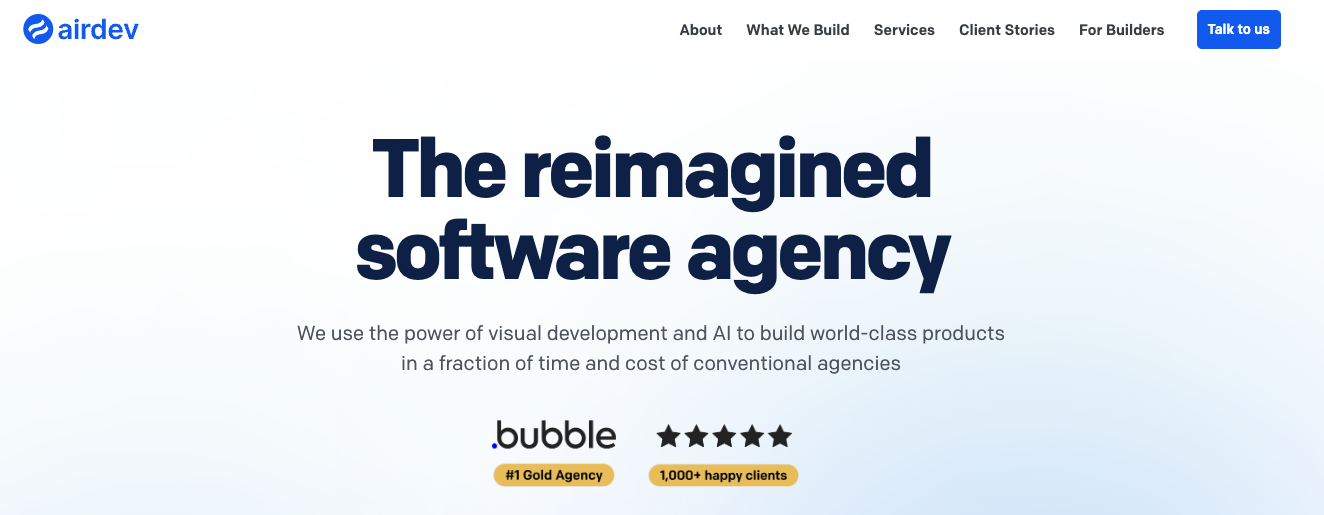
Airdev is a U.S.-based SaaS development company that uses no-code tools, primarily Bubble, to build web platforms, internal tools, and SaaS apps quickly.
Their team focuses on rapid launches and lean product builds for founders testing new concepts. While Airdev doesn’t cover the full spectrum of custom SaaS development services, they excel at validating ideas with working prototypes and user-centric design. Their process includes design specs, workflows, and structured delivery cycles.
6- DigitalSilk - Full-Service Agency Blending Branding With SaaS Development
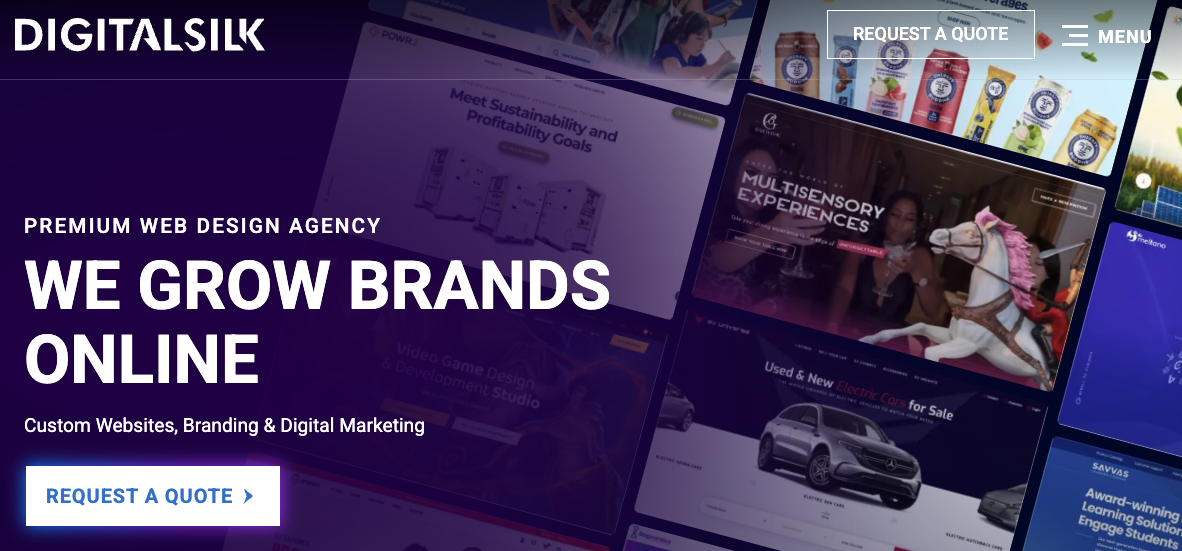
DigitalSilk blends branding, UI design, and web development for SaaS products in competitive markets. Their clients range from eCommerce platforms to enterprise tools.
They provide SaaS development services with an emphasis on frontend polish and visual positioning. DigitalSilk often works on websites, mobile apps, and marketing platforms that require high-impact design and responsive interfaces. Their team supports custom software development but is typically brought in for projects with a strong design or marketing component.
7- Bilberrry - Boutique Web & App Development Studio for Growing Companies
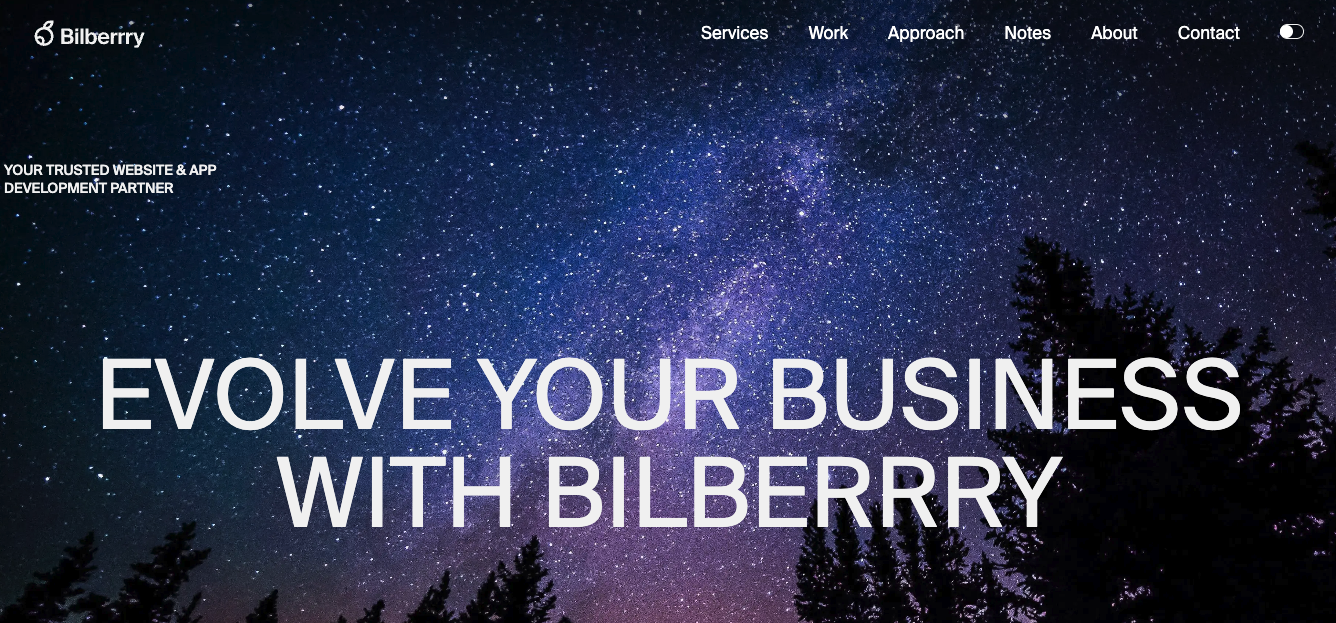
Bilberrry is a Seattle-based development agency that combines strategy, design, and engineering for companies building SaaS applications or eCommerce platforms.
They offer web development, product design, and backend engineering under one roof, often supporting clients from discovery through release. Their SaaS development services emphasize clean UX, stable integrations, and structured delivery. Bilberrry is not a high-volume shop, they work with a small number of clients at a time, often building custom websites or internal platforms with dedicated teams.
8- ScienceSoft - Enterprise Software Company With SaaS Experience

ScienceSoft is a long-established development company that supports enterprise clients with large-scale systems, including cloud solutions and B2B SaaS software.
Their SaaS development services often focus on integrating new platforms into legacy environments. They offer full-cycle software development and cloud consulting, with experience in SaaS application development for healthcare, retail, and manufacturing.
ScienceSoft brings a process-heavy model, suitable for regulated industries or large teams that prioritize data security, architecture audits, and retrieval-augmented generation frameworks.
9- Simform - Cloud-Native SaaS Engineers With AI & ML Capabilities

Simform is a cloud-native SaaS development agency that builds scalable applications with embedded AI and machine learning features, offering architecture similar to agentic AI systems.
Their team focuses on modern software architecture, especially microservices and event-driven design, for SaaS businesses handling large data sets or real-time operations. Simform offers SaaS software development services, platform engineering, and DevOps support across Google Cloud and AWS.
They’re also involved in developing SaaS applications with natural language processing and predictive analytics.
10- SingleMind - UX-Driven Software Development Partner for Digital Products
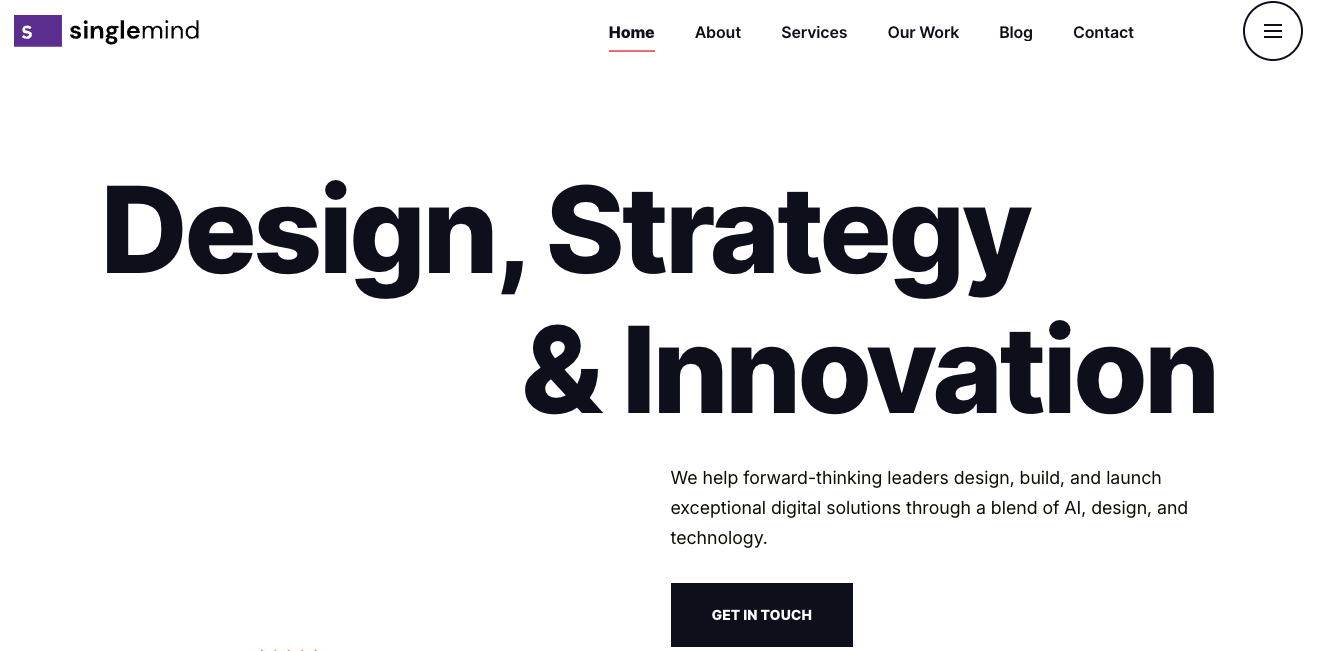
SingleMind is a U.S.-based development company focused on product strategy, web design, and user centric SaaS solutions for mid-market and enterprise clients.
They offer SaaS application development company services with a strong focus on frontend usability, information architecture, and platform consistency, features that align with generative AI-powered products.
Their developers support mobile app development, backend systems, and custom websites that balance usability with technical requirements.
How to Pick the Right SaaS Web Development Company for Your Stage
Startup vs Scale-up vs Enterprise: What Fit Looks Like at Each Stage
Your company’s stage should shape how you evaluate a SaaS development company.
Startups usually need fast MVP delivery, with lean teams and a focus on validating the SaaS model. The best fit here is often a partner who understands compressed timelines, product iteration, and early-stage technical decisions, like database setup, cloud providers, and basic role logic.
As teams grow, so do integration needs. A scale-up needs a SaaS product development company that can support platform complexity, user growth, and deeper analytics.
You’ll want support for multi tenant SaaS solutions, custom reporting, and mobile app development that fits growing user demand.
Enterprise buyers often prioritize long-term stability. That includes robust security measures, performance under load, and proven delivery history.
Agencies that focus on this space bring expertise in compliance, saas software development services, and migrating traditional software to cloud solutions without breaking existing tools.
When to Augment In-House Teams vs Fully Outsource
Not every company needs to outsource its entire SaaS project. Many start with a partial model, bringing in a SaaS development agency to fill gaps in technical expertise or speed up delivery when hiring slows down.
If your internal developers are focused on core systems, it may make sense to augment with external specialists for frontend development, API integration, or one-off mobile features. This structure works best when your in-house team owns the roadmap and architecture, but needs extra help delivering solutions under tight deadlines.
Fully outsourcing SaaS application development makes more sense when the internal team doesn’t have time, bandwidth, or familiarity with SaaS-specific architectures.
A complete handoff to the right SaaS app development company gives you end-to-end execution, from planning to deployment. Teams without product managers or technical leads benefit most from this model when working with platforms that require multiple systems to connect on the cloud computing stack.
Pricing Models Compared: Fixed-Bid, Time & Materials, Dedicated Team
Every SaaS development company prices work differently. The structure you choose should match your team’s stage, product clarity, and risk tolerance.
A fixed-bid model offers a defined scope and upfront cost. It works best when requirements are clear and unlikely to change. Early-stage SaaS projects often evolve fast, so this model can feel restrictive unless paired with room for scope reevaluation.
Time & Materials lets you pay for hours worked. It’s useful when priorities shift or deliverables are not fully mapped. Many SaaS development services use this model during MVPs or refactors.
A dedicated team gives you long-term access to developers, designers, and PMs, ideal for scale-ups or companies building multiple SaaS products.
Common model fits:
- Fixed-bid: clear deliverables, short-term builds
- T&M: evolving roadmap, faster iteration
- Dedicated team: long-term ownership, ongoing development process
Choosing wrong can lead to budget friction, or worse, product delays, a risk teams can avoid with thoughtful planning and accurate software development budgeting.
Vetting Checklist: SaaS Indicators, Culture Fit, Technical Stack
SaaS app development it’s about finding a team that understands product lifecycles, customer impact, and growth stages.
Before you sign with any SaaS development agency, look for clear signals that they’ve done this before, and that they’ll work the way your team needs.
Use this checklist when evaluating options:
- Do they have a portfolio of working SaaS applications, not just wireframes or conceptual product prototypes?
- Can they speak to your business goals, not just tech specs?
- Do their developers understand the saas model and subscription logic?
- Have they supported other companies through growth or a full saas migration?
- Can they explain their technology stack and development process clearly?
- Do you trust their ability to balance short-term delivery with long-term stability?
A strong agency will also be transparent about team structure, project tracking, and how they’ve supported other SaaS businesses during scale and transition phases.
Questions to Ask Before Hiring a SaaS Development Agency
Do You Have Multi-Tenant and Subscription Model Experience?
SaaS software requires architecture choices most traditional software doesn’t.
Multi-tenant logic, user-level permissions, and billing integrations are critical from day one, especially if you're planning for scale. A development team that hasn’t shipped a real SaaS platform before will likely miss important structural decisions early.
Ask how the agency approaches shared infrastructure, user data separation, and subscription logic.
Can they explain how they’ve handled automated billing, free trials, plan upgrades, or metered pricing in past SaaS applications?
The best SaaS development companies won’t reference generic systems. They’ll walk you through specific SaaS products they’ve built, how they mapped the SaaS model to the client’s business goals, and what decisions they made to keep the platform stable under pressure.
If they can’t show relevant experience, they’re not ready to own your stack.
Can You Build Both Marketing Site and Core Web App?
Many companies treat their marketing website and product as separate builds, but a unified platform saves time and reduces rework. Ask if the SaaS development team can own both sides of the experience: growth marketing assets and the core application logic.
Agencies that handle only backend systems often lack frontend fluency needed for landing pages, onboarding flows, or integrations with growth tools.
On the other side, web design agencies may not have the development expertise to support login logic, user dashboards, or API-based features inside the product.
A well-rounded team understands how to move users from acquisition to activation.
That means pairing SaaS software development with clean site structure, fast page loads, and a design system that serves both ends. The right partner will guide the transition from marketing touchpoints to actual product usage, without breaking the flow.
What Do Your Frontend–Backend Handoff and QA Processes Look Like?
SaaS platforms depend on reliable coordination between design, frontend, backend, and QA. If the handoff process breaks, the result is delays, regressions, or unstable product releases.
Ask the agency how frontend components are delivered to backend teams, and how product behavior is validated before launch.
- Do they maintain a unified backlog?
- Is QA embedded throughout the development process, or does it come last?
- Can they describe how they’ve handled complex SaaS products involving third-party APIs, role-based views, or performance testing?
The best SaaS development companies will have structured release processes, clear ownership for each feature, and integrated QA. A solid answer here signals maturity, especially if the agency supports multiple clients and manages infrastructure on cloud providers like AWS or Google Cloud.
How Do You Handle Bugs, Rollbacks, and Versioning Post-Launch?
Shipping is only the beginning.
Bugs will show up, users will report issues, and product priorities will change. The real test of a SaaS development agency is how they manage change without breaking what’s already working.
Ask what happens after release. Do they offer post-launch monitoring? Can they explain their rollback strategy if a release fails in production? Do they version deployments, tag builds, and document fixes for each sprint?
A team that regularly maintains saas software development projects will have clear answers here.
They’ll use tools to track bugs, validate fixes, and prevent regressions. They’ll also build in rollback points and maintain logs to recover quickly if something breaks.
This is important for teams offering SaaS application development services across cloud computing environments, where product downtime directly affects customer trust, and business’s growth.
If the agency stumbles here, you’re looking at risk you can’t afford.
Conclusion
SaaS development it’s about making smart decisions early, avoiding scope creep, and aligning every release with your users and revenue goals.
The best agencies help you think beyond features. They create structure, scale, and future-proofing.
As you evaluate development partners, focus on more than credentials. Look for teams that align with your stage, understand your technical stack, and can adapt quickly without sacrificing quality.
Whether you need full product delivery or short-term execution, the difference between success and slowdown often comes down to choosing the right people, especially if you're balancing no code vs full code software development.
If you want a team that moves fast, owns complexity, and supports long-term product growth, get in touch with NerdHeadz.
We’ve helped venture-backed startups build, launch, and scale SaaS products that work in the real world.
Frequently asked questions
What is the most successful SaaS company?

Salesforce is widely considered the most successful SaaS company to date. It pioneered cloud-based CRM and scaled across industries with steady revenue growth and product expansion.
What does a SaaS web development company do?

A SaaS web development company builds cloud-based software that runs in a browser. They handle everything from UX design to backend development, infrastructure, integrations, and ongoing support.
What is the best company for web development?

The best web development company depends on your goals. Some focus on design, others on custom functionality. NerdHeadz stands out for SaaS product development with fast delivery and AI-ready teams.
What is SaaS in web development?

SaaS (Software as a Service) in web development means creating browser-based applications users can access by subscription. Products are hosted in the cloud and updated centrally, no downloads needed.

Luciani Woestemeier
Luciani Zorrilla is a content marketer with experience in sales development, outbound sales, SEO, design, email marketing, and UX. She stands out in driving sustainable growth for tech startups through impactful SEO strategies and leading results-oriented marketing teams.
Related Articles
Subscribe to our Newsletter
.webp)
.webp)
Are you ready to talk about your project?
Schedule a consultation with our team, and we’ll send a custom proposal.


Choosing the right SaaS web development company can shape your entire product trajectory, from how fast you launch to how well your platform scales under pressure.
But not every team that builds websites is equipped to deliver working SaaS products, especially those with real architecture, billing logic, or user-facing automation.
This guide helps you find a partner who understands more than just code.
We break down what sets top agencies apart, what services they offer, and how to match their strengths to your business goals and product stage.
You’ll find a ranked list of the best SaaS development companies in 2025, including full-service agencies, design-forward studios, and engineering-led teams. Each profile outlines what they do well, and where they fit best.
Read on!
What is a SaaS Web Development Company?
A SaaS web development company is a team that designs and builds cloud-based applications users access through a browser. These tools are hosted remotely and sold as subscriptions, common examples include CRM platforms, accounting software, or team collaboration apps.
The job is more than merely writing code.
SaaS development services usually include product planning, user-centric design, backend logic, and cloud setup. A reliable partner in this space helps teams define their product, select a technology stack, and build for long-term growth.
Most agencies also handle key services like API development, multi-tenant architecture, security reviews, and custom software development. Some specialize in custom SaaS development for new ventures. Others work with growing companies to modernize existing software or migrate to better infrastructure.
For companies starting or growing an online product, an excellent SaaS development firm provides more than delivery, they provide development expertise, assist in goals clarification, and assist your product from conception to web presence.
What Qualifies a Team as a Leading SaaS Web Development Company?
Not every agency that builds web apps understands what makes SaaS work. A top-tier SaaS development company combines technical execution with a clear understanding of business models, user behavior, and product maintenance throughout the software development lifecycle.
Below are two foundational areas every serious SaaS team should master.
Deep SaaS Product Expertise: Multi-tenant, Subscription, & Scaling Architectures
A qualified SaaS web development company understands how subscription-based platforms operate behind the scenes. That means handling billing rules, pricing tiers, account roles, usage tracking, and permissions without introducing delays or downtime.
Multi-tenant architecture is a an important part of this.
Instead of duplicating infrastructure for each user, platforms must share resources securely and efficiently. Teams that specialize in custom SaaS development build systems that support user growth, isolate data properly, and stay responsive under traffic spikes.
Understanding scaling goes beyond writing fast code. It involves thoughtful database design, strategic caching, and working with cloud services to support platform performance.
A skilled SaaS application development company considers these challenges early, so the product works well when the first users sign up and continues to perform when thousands rely on it daily.
Full-Stack Strength: Frontend UX/UI, Backend, APIs, DevOps, & Security
Every layer of a SaaS product affects how users experience it.
A complete team will cover frontend workflows, backend logic, cloud infrastructure, QA testing, and release pipelines while focusing on long-term maintainability.
Design teams shape user flows around real tasks. Backend engineers organize data and business logic so features feel fast and predictable. DevOps specialists set up CI/CD pipelines, logging, and cloud deployment to reduce downtime and support versioned releases.
Security is treated as a main part of the process, not an afterthought. From OAuth implementation to encrypted storage and permission modeling, the development team must plan for common threats and compliance needs.
Teams that build SaaS platforms professionally know how to deliver software that holds up under pressure. They plan, test, and release in a way that aligns with the product’s objectives, user behavior, and anticipated scalability.
Proven Delivery: SaaS Projects That Go Beyond Demos
Shipping a polished demo is easy. Shipping a stable, scalable SaaS product that handles real traffic requires the same planning mindset found in enterprise app development.
Leading SaaS development companies show work that functions in production.
Look for examples that reflect actual usage: live dashboards, integrations with cloud services, subscription systems with flexible billing, or even no-code apps running complex workflows.. A SaaS development company that delivers working platforms is deeply involved in each technical aspect, from performance tuning to account management logic.
A strong delivery history also reveals how the team handles deadlines, communication, and stakeholder feedback.
Agencies with a proven track record in SaaS application development services tend to bring fewer surprises during high-pressure builds. That reliability matters when a product has paying users and no room for downtime.
Post-Launch Support & Iteration Strategy
A great SaaS platform isn't finished at launch.
Features grow. User behavior changes. Markets move. That’s why experienced teams plan for iteration early, mapping out checkpoints for feedback, testing, and infrastructure updates.
Top-tier SaaS development services include post-release support that goes far beyond basic bug fixes, especially for startups focused on scaling with software development agencies.
Teams may monitor API performance, improve latency, or revise parts of the architecture to support new use cases. Ongoing delivery is often where projects fall apart, unless there’s a structure in place for clear ownership and prioritization.
This phase also reveals how deeply a team understands product goals. Developers who stay engaged after launch are better equipped to align roadmap decisions with growth metrics, churn signals, or user behavior patterns.
SaaS product development isn’t a one-off task. It’s a long game, one that requires clarity, discipline, and real development expertise from the first release onward.
10 Best SaaS Web Development Companies in 2025 (Updated)
1- NerdHeadz - Custom SaaS Web & AI Development for Venture-Backed Startups

NerdHeadz leads the list for one reason: they deliver.
Based in Europe and the U.S., the team works closely with fast-moving startups, venture-backed, enterprises, and growing SaaS companies rely on their team to build, refine, and scale platforms, without bloated timelines or missed context.
Their work includes SaaS application development, backend infrastructure, no-code integrations, and AI development services, backed by their experience as one of the top custom software development agencies for SaaS teams..
What makes them stand out isn’t a single feature. It’s how well they align with fast-growth teams and turn vague ideas into stable, scalable products.
Services include:
- Custom SaaS platform development (B2B, B2C, internal tools)
- AI integrations using generative models, RAG development, and LLM APIs
- SaaS application development services for MVPs and v2+ products
- UX design, web development, and frontend engineering
- Infrastructure and DevOps setup using Google Cloud and AWS
- Ongoing product iteration and roadmap alignment
- SaaS consulting for business model clarity, architecture, and scaling
Why teams choose NerdHeadz:
- Built for speed: development cycles fit startup timelines
- Clear delivery structure: no scope drift, no hand-waving
- Developer fluency in SaaS business models, multi-tenant architecture, and data handling
- Flexible engagement: full builds or plug-in product squads
- Trusted by early-stage teams and funded companies scaling fast
They’re not just a vendor, they become part of the development team. For any SaaS project that needs fast traction and long-term structure, NerdHeadz is the right SaaS development company to talk to.
2- GojiLabs - Startup-Focused Product & Web Development Partner

GojiLabs is a U.S.-based development company known for working with early-stage teams. They focus on turning product ideas into validated MVPs using lean design and custom web development.
Their team offers full-stack support for SaaS application development, including frontend design, backend architecture, and mobile app development. GojiLabs is usually involved at the concept stage, offering SaaS consulting to help define business goals, prioritize features, and move quickly toward launch.
3- Altar.io - Design-Driven Software for Early-Stage Startups
Altar.io positions itself as a design-forward SaaS product development company that helps startups validate, scope, and launch digital products. With roots in Lisbon and a presence across Europe, they focus on early-stage software strategy and UI/UX execution.
Their team supports SaaS application development with structured discovery phases, clickable prototypes, and frontend-first builds. While they handle custom software development for initial releases, projects with complex infrastructure or multi-tenant architecture often transition to larger teams later.
4- Azumo - Nearshore Custom Software & AI Development Firm

Azumo is a U.S.-based SaaS development company with nearshore teams across Latin America. They work with businesses that need engineering support across multiple time zones.
Their focus areas include backend engineering, API development, and AI-related SaaS solutions. Azumo supports teams with flexible developer resourcing, contributing to ongoing SaaS projects or building discrete product components. While they offer SaaS application development services across web and mobile platforms, most of their work centers on the technical aspects, not full product ownership.
5- Airdev - No-Code SaaS Builders Specializing in Bubble

Airdev is a U.S.-based SaaS development company that uses no-code tools, primarily Bubble, to build web platforms, internal tools, and SaaS apps quickly.
Their team focuses on rapid launches and lean product builds for founders testing new concepts. While Airdev doesn’t cover the full spectrum of custom SaaS development services, they excel at validating ideas with working prototypes and user-centric design. Their process includes design specs, workflows, and structured delivery cycles.
6- DigitalSilk - Full-Service Agency Blending Branding With SaaS Development

DigitalSilk blends branding, UI design, and web development for SaaS products in competitive markets. Their clients range from eCommerce platforms to enterprise tools.
They provide SaaS development services with an emphasis on frontend polish and visual positioning. DigitalSilk often works on websites, mobile apps, and marketing platforms that require high-impact design and responsive interfaces. Their team supports custom software development but is typically brought in for projects with a strong design or marketing component.
7- Bilberrry - Boutique Web & App Development Studio for Growing Companies

Bilberrry is a Seattle-based development agency that combines strategy, design, and engineering for companies building SaaS applications or eCommerce platforms.
They offer web development, product design, and backend engineering under one roof, often supporting clients from discovery through release. Their SaaS development services emphasize clean UX, stable integrations, and structured delivery. Bilberrry is not a high-volume shop, they work with a small number of clients at a time, often building custom websites or internal platforms with dedicated teams.
8- ScienceSoft - Enterprise Software Company With SaaS Experience

ScienceSoft is a long-established development company that supports enterprise clients with large-scale systems, including cloud solutions and B2B SaaS software.
Their SaaS development services often focus on integrating new platforms into legacy environments. They offer full-cycle software development and cloud consulting, with experience in SaaS application development for healthcare, retail, and manufacturing.
ScienceSoft brings a process-heavy model, suitable for regulated industries or large teams that prioritize data security, architecture audits, and retrieval-augmented generation frameworks.
9- Simform - Cloud-Native SaaS Engineers With AI & ML Capabilities

Simform is a cloud-native SaaS development agency that builds scalable applications with embedded AI and machine learning features, offering architecture similar to agentic AI systems.
Their team focuses on modern software architecture, especially microservices and event-driven design, for SaaS businesses handling large data sets or real-time operations. Simform offers SaaS software development services, platform engineering, and DevOps support across Google Cloud and AWS.
They’re also involved in developing SaaS applications with natural language processing and predictive analytics.
10- SingleMind - UX-Driven Software Development Partner for Digital Products

SingleMind is a U.S.-based development company focused on product strategy, web design, and user centric SaaS solutions for mid-market and enterprise clients.
They offer SaaS application development company services with a strong focus on frontend usability, information architecture, and platform consistency, features that align with generative AI-powered products.
Their developers support mobile app development, backend systems, and custom websites that balance usability with technical requirements.
How to Pick the Right SaaS Web Development Company for Your Stage
Startup vs Scale-up vs Enterprise: What Fit Looks Like at Each Stage
Your company’s stage should shape how you evaluate a SaaS development company.
Startups usually need fast MVP delivery, with lean teams and a focus on validating the SaaS model. The best fit here is often a partner who understands compressed timelines, product iteration, and early-stage technical decisions, like database setup, cloud providers, and basic role logic.
As teams grow, so do integration needs. A scale-up needs a SaaS product development company that can support platform complexity, user growth, and deeper analytics.
You’ll want support for multi tenant SaaS solutions, custom reporting, and mobile app development that fits growing user demand.
Enterprise buyers often prioritize long-term stability. That includes robust security measures, performance under load, and proven delivery history.
Agencies that focus on this space bring expertise in compliance, saas software development services, and migrating traditional software to cloud solutions without breaking existing tools.
When to Augment In-House Teams vs Fully Outsource
Not every company needs to outsource its entire SaaS project. Many start with a partial model, bringing in a SaaS development agency to fill gaps in technical expertise or speed up delivery when hiring slows down.
If your internal developers are focused on core systems, it may make sense to augment with external specialists for frontend development, API integration, or one-off mobile features. This structure works best when your in-house team owns the roadmap and architecture, but needs extra help delivering solutions under tight deadlines.
Fully outsourcing SaaS application development makes more sense when the internal team doesn’t have time, bandwidth, or familiarity with SaaS-specific architectures.
A complete handoff to the right SaaS app development company gives you end-to-end execution, from planning to deployment. Teams without product managers or technical leads benefit most from this model when working with platforms that require multiple systems to connect on the cloud computing stack.
Pricing Models Compared: Fixed-Bid, Time & Materials, Dedicated Team
Every SaaS development company prices work differently. The structure you choose should match your team’s stage, product clarity, and risk tolerance.
A fixed-bid model offers a defined scope and upfront cost. It works best when requirements are clear and unlikely to change. Early-stage SaaS projects often evolve fast, so this model can feel restrictive unless paired with room for scope reevaluation.
Time & Materials lets you pay for hours worked. It’s useful when priorities shift or deliverables are not fully mapped. Many SaaS development services use this model during MVPs or refactors.
A dedicated team gives you long-term access to developers, designers, and PMs, ideal for scale-ups or companies building multiple SaaS products.
Common model fits:
- Fixed-bid: clear deliverables, short-term builds
- T&M: evolving roadmap, faster iteration
- Dedicated team: long-term ownership, ongoing development process
Choosing wrong can lead to budget friction, or worse, product delays, a risk teams can avoid with thoughtful planning and accurate software development budgeting.
Vetting Checklist: SaaS Indicators, Culture Fit, Technical Stack
SaaS app development it’s about finding a team that understands product lifecycles, customer impact, and growth stages.
Before you sign with any SaaS development agency, look for clear signals that they’ve done this before, and that they’ll work the way your team needs.
Use this checklist when evaluating options:
- Do they have a portfolio of working SaaS applications, not just wireframes or conceptual product prototypes?
- Can they speak to your business goals, not just tech specs?
- Do their developers understand the saas model and subscription logic?
- Have they supported other companies through growth or a full saas migration?
- Can they explain their technology stack and development process clearly?
- Do you trust their ability to balance short-term delivery with long-term stability?
A strong agency will also be transparent about team structure, project tracking, and how they’ve supported other SaaS businesses during scale and transition phases.
Questions to Ask Before Hiring a SaaS Development Agency
Do You Have Multi-Tenant and Subscription Model Experience?
SaaS software requires architecture choices most traditional software doesn’t.
Multi-tenant logic, user-level permissions, and billing integrations are critical from day one, especially if you're planning for scale. A development team that hasn’t shipped a real SaaS platform before will likely miss important structural decisions early.
Ask how the agency approaches shared infrastructure, user data separation, and subscription logic.
Can they explain how they’ve handled automated billing, free trials, plan upgrades, or metered pricing in past SaaS applications?
The best SaaS development companies won’t reference generic systems. They’ll walk you through specific SaaS products they’ve built, how they mapped the SaaS model to the client’s business goals, and what decisions they made to keep the platform stable under pressure.
If they can’t show relevant experience, they’re not ready to own your stack.
Can You Build Both Marketing Site and Core Web App?
Many companies treat their marketing website and product as separate builds, but a unified platform saves time and reduces rework. Ask if the SaaS development team can own both sides of the experience: growth marketing assets and the core application logic.
Agencies that handle only backend systems often lack frontend fluency needed for landing pages, onboarding flows, or integrations with growth tools.
On the other side, web design agencies may not have the development expertise to support login logic, user dashboards, or API-based features inside the product.
A well-rounded team understands how to move users from acquisition to activation.
That means pairing SaaS software development with clean site structure, fast page loads, and a design system that serves both ends. The right partner will guide the transition from marketing touchpoints to actual product usage, without breaking the flow.
What Do Your Frontend–Backend Handoff and QA Processes Look Like?
SaaS platforms depend on reliable coordination between design, frontend, backend, and QA. If the handoff process breaks, the result is delays, regressions, or unstable product releases.
Ask the agency how frontend components are delivered to backend teams, and how product behavior is validated before launch.
- Do they maintain a unified backlog?
- Is QA embedded throughout the development process, or does it come last?
- Can they describe how they’ve handled complex SaaS products involving third-party APIs, role-based views, or performance testing?
The best SaaS development companies will have structured release processes, clear ownership for each feature, and integrated QA. A solid answer here signals maturity, especially if the agency supports multiple clients and manages infrastructure on cloud providers like AWS or Google Cloud.
How Do You Handle Bugs, Rollbacks, and Versioning Post-Launch?
Shipping is only the beginning.
Bugs will show up, users will report issues, and product priorities will change. The real test of a SaaS development agency is how they manage change without breaking what’s already working.
Ask what happens after release. Do they offer post-launch monitoring? Can they explain their rollback strategy if a release fails in production? Do they version deployments, tag builds, and document fixes for each sprint?
A team that regularly maintains saas software development projects will have clear answers here.
They’ll use tools to track bugs, validate fixes, and prevent regressions. They’ll also build in rollback points and maintain logs to recover quickly if something breaks.
This is important for teams offering SaaS application development services across cloud computing environments, where product downtime directly affects customer trust, and business’s growth.
If the agency stumbles here, you’re looking at risk you can’t afford.
Conclusion
SaaS development it’s about making smart decisions early, avoiding scope creep, and aligning every release with your users and revenue goals.
The best agencies help you think beyond features. They create structure, scale, and future-proofing.
As you evaluate development partners, focus on more than credentials. Look for teams that align with your stage, understand your technical stack, and can adapt quickly without sacrificing quality.
Whether you need full product delivery or short-term execution, the difference between success and slowdown often comes down to choosing the right people, especially if you're balancing no code vs full code software development.
If you want a team that moves fast, owns complexity, and supports long-term product growth, get in touch with NerdHeadz.
We’ve helped venture-backed startups build, launch, and scale SaaS products that work in the real world.

Luciani Zorrilla is a content marketer with experience in sales development, outbound sales, SEO, design, email marketing, and UX. She stands out in driving sustainable growth for tech startups through impactful SEO strategies and leading results-oriented marketing teams.

%201.svg)

%201.svg)
%201.webp)

%201.webp)
